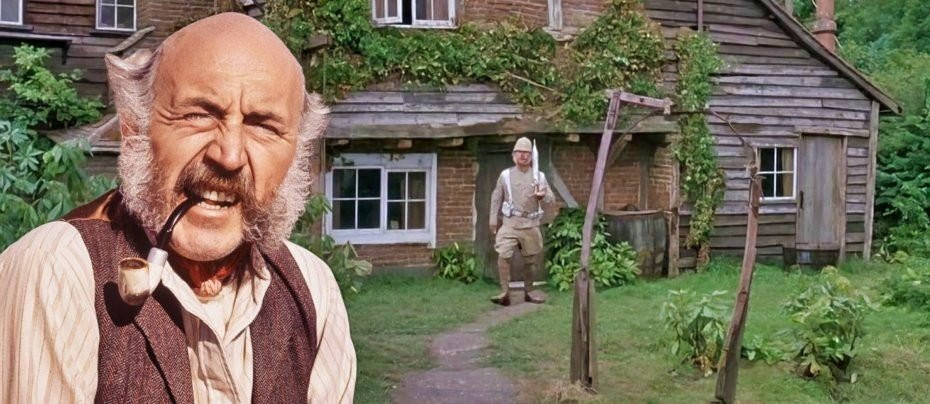
Lionel Jeffries
"Oh, the posh posh travelling life, the travelling life for me..."
Lionel Jeffries, an actor whose versatility, charm, and talent left an indelible mark on the British film industry, was a figure whose career spanned over five decades and took in over 150 films, capturing the hearts of audiences young and old. Jeffries, known for his bald head, baritone voice and bristling moustache, often played comic character roles, portraying policemen, military types, and other English eccentrics and had the ability to steal a scene with just an inquisitive stare, a scowl, or the twitch of a muscle. At least one actor joked; “Never work with dogs, babies or Lionel Jeffries, because they are all scene stealers.”
Born on 10 June 1926, in Forest Hill, SE London, Jeffries’ path to stardom was paved with a blend of grit, determination, and a passion for the performing arts. His journey from stage to screen is a testament to his enduring appeal and remarkable skill as an actor, director, and writer. This is all the more remarkable due to the fact that he had an unhappy childhood, growing up with parents who were social workers within the Salvation Army. Years later, Lionel’s son, Ty Jeffries, admitted in a frank interview, “My father did his very best not to repeat in our upbringing the childhood he had had, which was a nightmarish one. The beatings from his father, as well as the mental abuse, haunted him all his life so he tried his very best to be a much more loving father to us.” As such, his journey to stardom was anything but conventional.
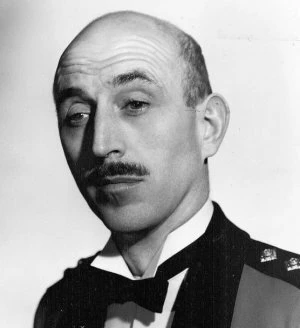
As a boy, Lionel attended the Queen Elizabeth Grammar School in Wimborne Minster in Dorset. When war broke out across the world in 1939, he was too young to be called up, but towards the end of the war he received a commission in the Oxford and Buckinghamshire Light Infantry and served in Burma at the Rangoon radio station. He later blamed the hot and humid atmosphere here for his hair loss, going completely bald at the age of 19. Of his baldness, he once said: “[I] tried a toupee once, but it looked like a dead moth on a boiled egg.”
It was here that Lionel discovered a talent for acting and enjoyed being involved with other performers in concert parties. Certain that the entertainment industry was where his future lay, he enrolled at the Royal Academy of Dramatic Art after the war – defying his parents, who regarded showbusiness as sinful. After RADA, where he won his acting diploma in 1949, Lionel entered repertory at the David Garrick Theatre, Lichfield, Staffordshire for two years. In Staffordshire, Lionel got his first notices with the local press picking him out for praise for his performance in Love from a Stranger, a play based on a short Agatha Christie story. One critic remarked that, ‘Mr. Jeffries, at first with a dry wit, and later with the rising tempo of madness, gives an enthralling performance. Down to the smallest detail he is the part he plays.’
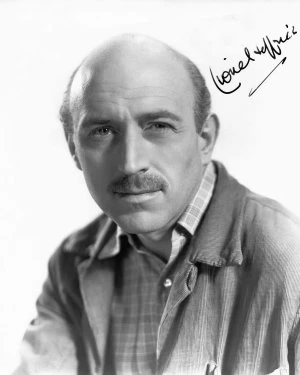
In 1950, Lionel made his film debut in Hitchcock’s Stage Fright as, ironically, ‘Bald RADA Student’, although the role was uncredited. In 1951, he was receiving more plaudits for his performance as Dr. Haggett in the play The Late Christopher Bean: ‘On the stage the part is one of sheer amusement, and Lionel Jeffries keeps the audience in paroxysms of laughter as he struggles first with his petulant wife and elder daughter, later with those who congregate to share the spoils of Chris Beans’ labour. This week’s performance is Lionel Jeffries in his element and at his very best.’
By 1952, Lionel had made his way to the London stage appearing in Trelawny of the Wells at the Hammersmith Lyric. His performance in The Enchanted (Arts Theatre) that year, won him a 1953 Fleet Street Award as Best Actor. Also in ‘52 he made his television debut in a BBC Sunday Night Theatre presentation of The Great Healer, but television would have to wait many years before Lionel embraced the small screen.
From 1955 onwards, Lionel’s career took off and by 1960 he had appeared in around 40 films. Among them were The Colditz Story, The Quatermass Xperiment, Lust for Life, Doctor at Large, Up the Creek and Idle on Parade. Arguably, his breakout role came in 1959 with the film The Nun's Story, where he starred as Dr. Goovaerts alongside Audrey Hepburn. One of his most notable attributes was his remarkable ability to embody a wide range of characters as he seamlessly transitioned from comedic roles to more serious, dramatic parts, showcasing his extensive acting range. However, it was his comedic roles that truly endeared him to the public.
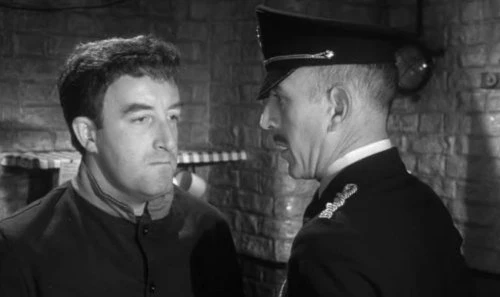
Alongside Peter Sellers in both Two Way Stretch (1960, as a prison warden) and The Wrong Arm of the Law (1963, as the inept Inspector "Nosey" Parker), Lionel produced performances that almost eclipsed those of the films’ star. His comedic timing and physical humour were impeccable, earning him critical acclaim and establishing him as a beloved figure in British comedy. As a character actor, he made up to half a dozen films a year. When he played Professor Cavor in First Men in the Moon (1964), based on the H.G. Wells story, he was at the height of his skills as the eccentric Victorian scientist.
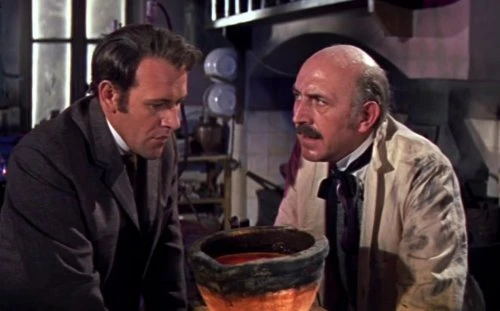
However, it was his portrayal of Grandpa Potts in the 1968 classic Chitty Chitty Bang Bang that cemented Jeffries’ status as a household name. Despite being six months younger than Dick Van Dyke, who played his son, Lionel’s portrayal was so convincing that audiences accepted him wholeheartedly in the paternal role. His performance was a masterclass in how to blend whimsy and sincerity, making Grandpa Potts a character that has endured in the hearts of viewers for generations.
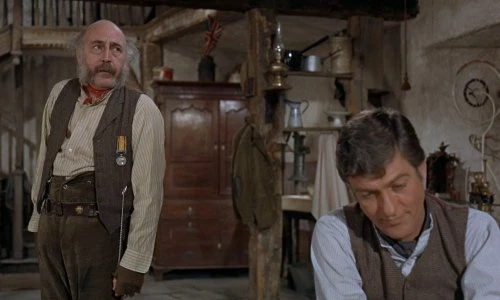
In addition to his acting prowess, Lionel demonstrated his talent behind the camera. He made his directorial debut with the 1970 film The Railway Children, which remains one of the most beloved adaptations of E. Nesbit’s classic novel. Lionel’s direction was marked by a deep respect for the source material and a keen understanding of the emotional core of the story. His ability to elicit poignant performances from his young cast and his meticulous attention to period detail created a timeless film that continues to enchant audiences. Lionel had read the book for the first time when he was returning to Britain by ship from the United States to film Chitty Chitty Bang Bang. Having found that his own books had been lost on the journey, he borrowed The Railway Children from his daughters, Martha and Elizabeth. "As soon as I got home, I bought a six-month option on it for £300, sat down and began to write the screenplay," he recalled. According to Ty Jeffries, the project was a poignant labour of love into which Lionel poured his longing for the happy childhood he had never had.
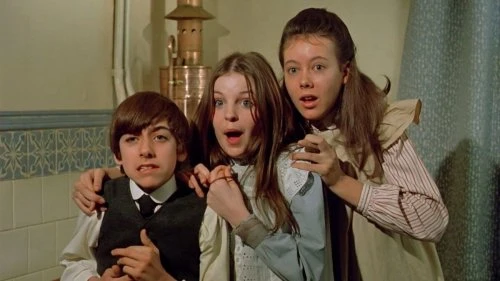
Two years later, Lionel followed The Railway Children with The Amazing Mr. Blunden. The actress Lynne Frederick won the Evening Standard British Film Award for "Best New Coming Actress" in 1973 for her role in the film.
Lionel had a negative attitude towards television and avoided the medium for many years, but in 1980 he agreed to play a role in Dennis Potter’s Cream in My Coffee in which an elderly married couple (Peggy Ashcroft being the wife) return to the hotel where they became close when they were young. In flashbacks to the earlier visit, the origins of both their pleasures and problems are revealed. Realising that TV production values were now little different from those in the film industry, Lionel's attitude towards it mellowed and he began to appear more regularly on television.
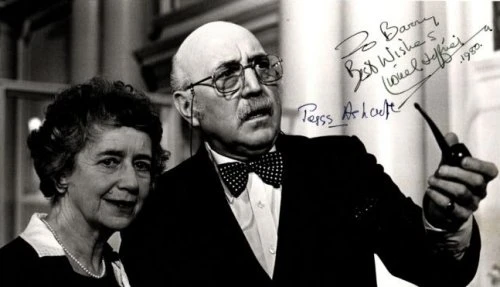
In 1982, Lionel joined Ian Ogilvy and Brigit Forsyth as a married couple whose lives are disrupted when his father comes to live with them in the sitcom Tom, Dick and Harriett. He also guest starred in a number of popular shows such as Minder, The Comic Strip Presents…, C.A.T.S. Eyes, Inspector Morse and Casualty. In 1991 he starred in the sitcom Rich Tea and Sympathy which starred Patricia Hodge and Dennis Quilley.
Lionel’s last screen appearance was an episode of the science fiction series Lexx, a co-production from Canada, Germany, America and the UK. Following this he retired, possibly due to health reasons as over the next few years his health did go into decline. For the last twelve years of his life, he suffered from vascular dementia and passed away on 19 February 2010 at a nursing home in Poole, Dorset. He was 83 years of age.
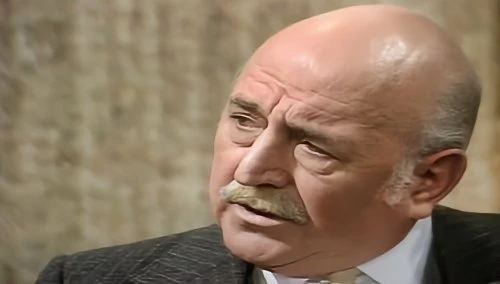
Lionel Jeffries’ legacy is one of a consummate artist who brought joy and laughter to millions. His performances continue to be celebrated for their humour, warmth, and depth. Actress Jenny Agutter, star of The Railway Children, remembered him as being "an extraordinary character" and "wonderfully funny".
"He was a total dear to work with," she told the BBC. "He very much created a family on set." His is a name that evokes fond memories for many film enthusiasts. His career saw him play an array of larger-than-life characters and was one that left an indelible mark on British cinema.
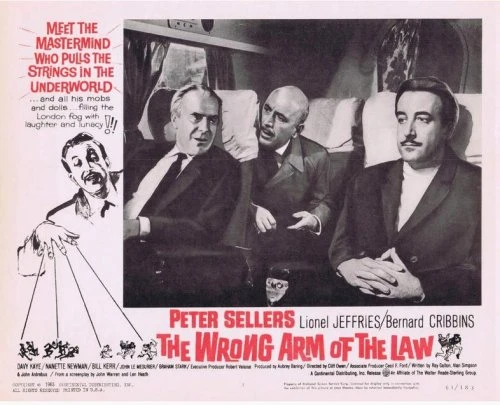
Published on July 1st, 2024. Written by Laurence Marcus for Television Heaven.









